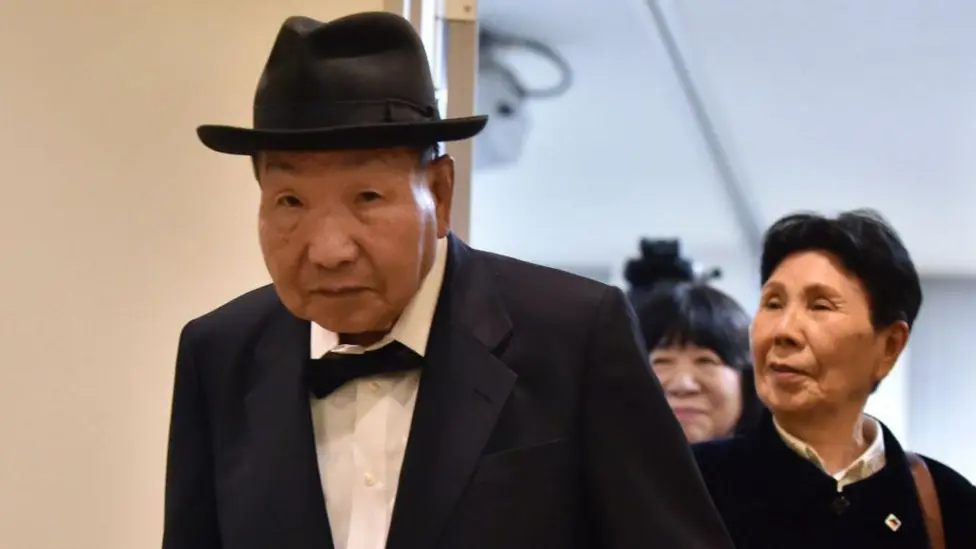
Iwao Hakamada, the world’s longest-serving death row prisoner, was acquitted by a Japanese court on Thursday, September 26, 2024, ending a saga that began more than five decades ago. Hakamada, who was convicted in 1968 for the murder of his boss and the boss’s family, had spent 46 years on death row before being released in 2014 pending retrial.
The Shizuoka District Court ruled that Hakamada, now 88 years old, was not guilty, citing significant doubts over the evidence that had led to his conviction. Judge Koshi Kunii declared, “The court finds the defendant innocent.” Although Hakamada’s health has deteriorated, his 91-year-old sister, Hideko, represented him in court, bowing deeply in gratitude after the verdict.
Hakamada’s case has drawn considerable public attention, particularly due to allegations of coerced confessions and fabricated evidence. “For so long, we have fought a battle that has felt endless. But this time, I believe it will be settled,” Hideko told reporters earlier this year.
The retrial began in 2023 after Hakamada’s legal team argued that crucial evidence, including a set of blood-stained clothes, had been improperly obtained and could have been planted by investigators. Critics of Japan’s criminal justice system have labeled it “hostage justice,” highlighting issues such as prolonged detention and intimidation during interrogations.
Teppei Kasai, an Asia program officer for Human Rights Watch, remarked, “Hakamada’s case is just one of countless examples of how Japan’s criminal justice system must change.”
As Japan continues to uphold capital punishment, Hakamada’s acquittal serves as a reminder of the urgent need for reform in a system that has faced mounting scrutiny for its treatment of suspects.







